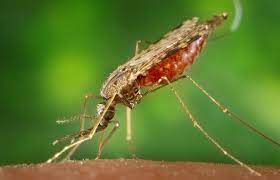New mosquito species threatens Nigeria, others in malaria fight – WHO
Nigeria and other African countries are at risk of an upsurge in malaria cases due to the discovery of a mosquito species known as “Steve” (scientifically termed Anopheles stephensi). According to the World Health Organization (WHO), the “Steve” mosquito, found in South Asia, was spotted for the first time in Djibouti in 2012. Malaria has spread […]

new mosquito specie threatens nigeria, others in malaria fight who
Nigeria and other African countries are at risk of an upsurge in malaria cases due to the discovery of a mosquito species known as “Steve” (scientifically termed Anopheles stephensi).
According to the World Health Organization (WHO), the “Steve” mosquito, found in South Asia, was spotted for the first time in Djibouti in 2012.
Malaria has spread rapidly throughout the country since its discovery. The mosquito has spread to seven African countries, including Ethiopia, Sudan, Somalia, Kenya, Nigeria, and Ghana.
The “Steve” mosquito is an urban breeder that likes dry environments, distinguishing it from other mosquitos that often nest in rivers and marshes.
It is particularly tough to manage due to its poor moisture tolerance and tendency to grow on water trapped in gutters, tyres, and containers.
The odd behaviours of this new species, including as biting outside during the day and exhibiting resistance to widely used insecticides, have raised concerns.
WHO’s chief of tropical diseases in Africa, Dr. Dorothy Achu, emphasized the threat that “Steve” posed in urban settings and questioned the efficacy of current interventions, which primarily focus on indoor therapies.
She emphasized that efforts to diminish this powerful mosquito’s impact on public health were hampered by the difficulty in locating and removing it from hostile environments.
As the “Steve” mosquito spreads, health experts are grappling with the urgent need for innovative solutions to address this new threat to malaria control in Africa.
Many African countries continue to carry out comprehensive malaria-eradication programmes that use a combination of preventative measures, diagnostic tools, and therapeutic treatments.
Cape Verde is the most recent of three African countries to be declared malaria-free.
